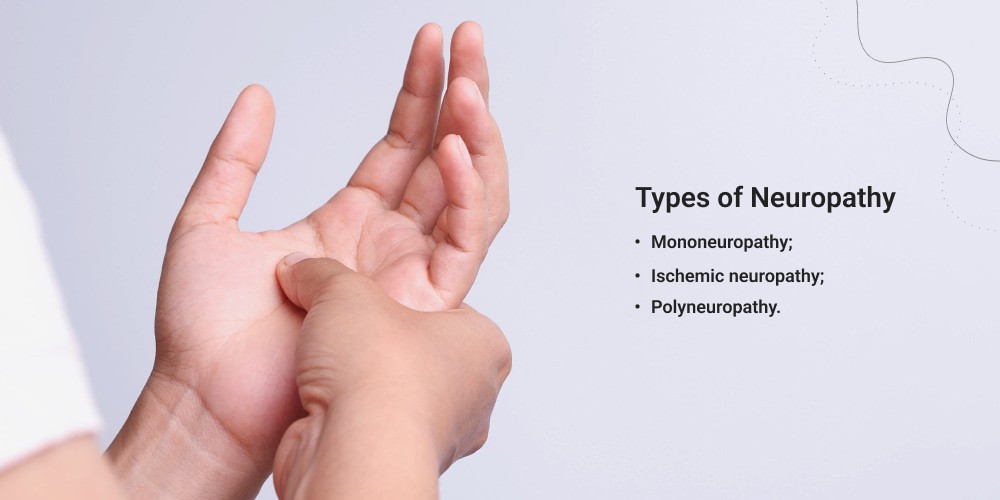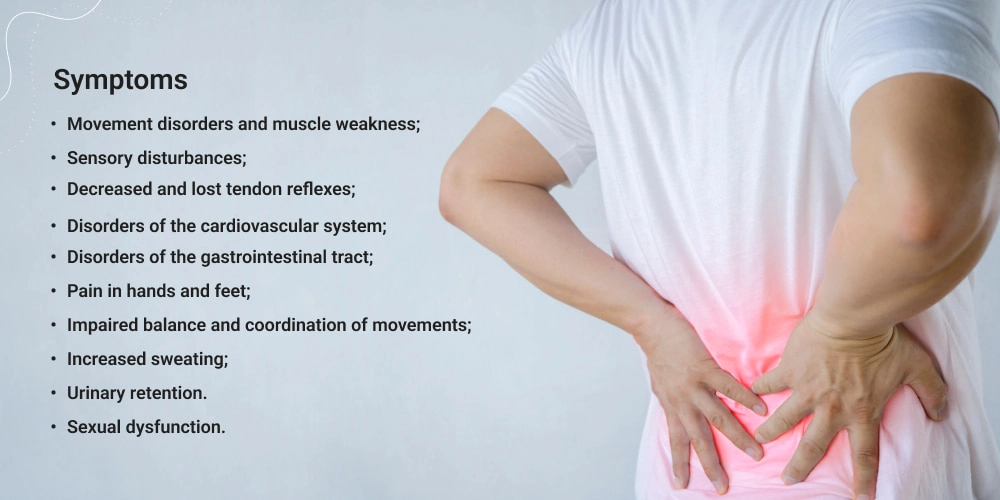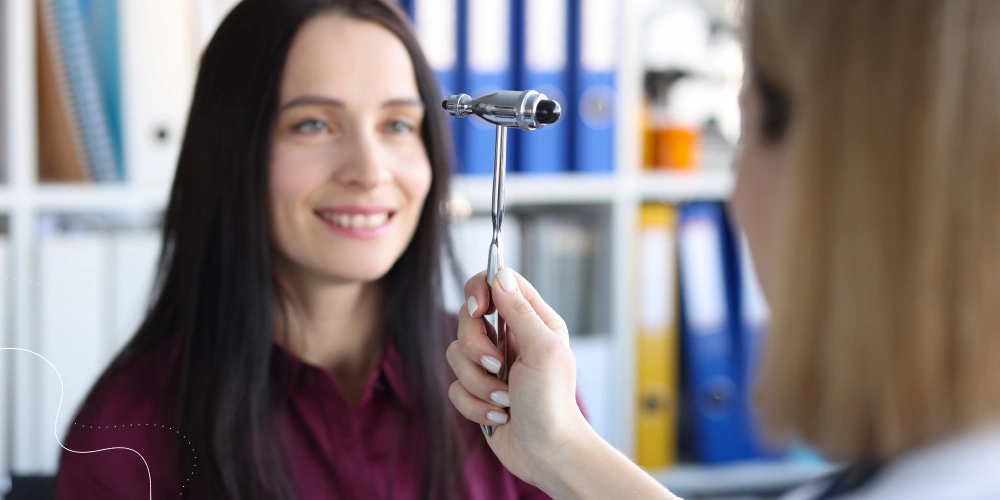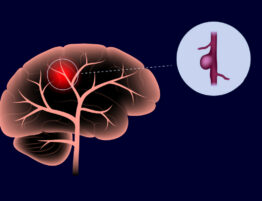Neuropathy is a disease characterised by damage to one or more nerves of the peripheral nervous system. It includes the cranial and spinal nerves, as well as the nerves and plexuses of the autonomic nervous system. Neuropathy appears as a sensitivity disorder, pain in the affected area, convulsions, muscle weakness and difficulty in movement.
Presumably, the number of patients with the disease is greater becausе some of them do not go to the doctor in the beginning stages of neuropathy. The prevalence of neuropathy among the population is 2-7%. The risk of developing the disease increases with ageing: at 60, pathology occurs in 40% of cases.
If one nerve suffers, we are talking about mononeuropathy. If there are multiple symmetrical damages to peripheral nerves (for example, when the process covers both lower or upper limbs at once, etc.) – it is polyneuropathy. The pathological process can cover both cranial and peripheral nerves. Damage to the peripheral nerve trunks, which includes the nerve pinch due to inflammation and swelling in the muscle-bone tunnel, is called tunnel syndrome.
Different Types of Neuropathy
Varieties of neuropathy are determined depending on the number of affected nerves. They include:
-
- Mononeuropathy
- Ischemic neuropathy
- Polyneuropathy
Mononeuropathy. If only one nerve is involved in the pathological process, it reflects mononeuropathy. This type of neuropathy, compression-ischemic neuropathy, often occurs in large nerve trunks – the femoral, sciatic, trigeminal or radiocarpal nerves. This pathology is relatively easy to diagnose. Symptoms appear in the direction of the location of the nerve trunk in the tissues.
Ischemic neuropathy. Another neuropathy type is ischemic neuropathy, but it only affects the optic nerve. It is like a heart attack, leading to a drop in visual acuity, even to blindness. Post-traumatic neuropathy is distinguished separately due to a fracture, compression of a limb, sprain, or other injuries.
Polyneuropathy. With polyneuropathy, entire groups of peripheral nerves are affected. The disease can occur simultaneously in several limbs, often symmetrically on different body halves, and is accompanied by many symptoms.
Depending on the causes, the following types of neuropathy are distinguished:
- Metabolic – occur with metabolic disorders, they can be diabetic, uremic, or hepatic;
- Infectious-toxic – develop with viral diseases (AIDS, leprosy, Lyme disease);
- Toxic – nerve fibers are damaged by poisons, heavy metals, and alcohol; it is possible with an overdose of medicines;
- Hereditary – it includes inherited genetic diseases and syndromes: Refsum’s disease, Roussy-Levy syndrome, Charcot-Marie-Tutta amyotrophy;
- Alimentary – occurs in people with malnutrition and with a deficiency of specific vitamins;
- Autoimmune – are formed when the immune system attacks its nerve fibres. These include Miller-Flescher syndrome, paraneoplastic neuropathies in oncological diseases, and paraproteinemic polyneuropathy.
Neuropathies are divided into different types of neuropathy, depending on the damage to the nerve trunk. They can be axonal when the inner part of the nerve is damaged and demyelinating, in which the sheath is destroyed, and the transmission of the nerve impulse is disrupted.
3 Stages of Neuropathy
The 3 stages of neuropathy include:
- Subclinical Neuropathy
- Clinical Neuropathy
- Late complications of clinical neuropathy
Let’s look closer at its development.
| Stage | Characteristic |
| Stage 1
Subclinical Neuropathy |
The beginning stages of neuropathy are characterized by:
• No symptoms or signs • Subclinical neuropathy (stage 1) be diagnosed in specialized neurophysiological departments • It is clinically impossible to make a differential diagnosis between 0 and 1 stages |
| Stage 2
Clinical Neuropathy Chronic pain form |
The second stage of peripheral neuropathy is characterized by:
• Presence of symptoms (aggravated at night): burning, sudden pain, stabbing pain • Tingling • Absence or sensitivity disturbance and decreased or absent reflexes |
| Acute pain form | • Poor diabetes control, weight loss
• Diffuse pain (trunk) • It can also be hyperesthesia • Minimal sensory disturbances or their absence during the peripheral neurological examination |
| Amyotrophy | • It usually occurs in older people with undiagnosed or poorly controlled type 2 diabetes. It presents with muscle weakness, usually affects the proximal muscles of the lower extremities, subacute onset
• It is usually accompanied by pain, especially at night, with minimal sensory disturbance |
| Painless form combined with complete/partial loss of sensation | • Absence of symptoms or numbness of the feet, decreased temperature sensitivity, impaired pain sensitivity
• Signs of reduced or absent sensation with no reflexes |
| Stage 3
Late complications of clinical neuropathy |
What is end-stage neuropathy characterized by?
• Foot ulcers • Neuroosteoarthropathy • Non-traumatic amputation |
Symptoms of Neuropathy
Although various reasons cause neuropathy, the main symptoms of the neuropathy progression are:
- Movement disorders and muscle weakness. The patient has difficulty performing fine motor activities, for example, buttoning. There are problems with walking – the patient may fall due to weakness of the foot muscles.
- Sensory disturbances – numbness, increased tactile sensitivity, sudden shooting pain, similar to an electric shock.
- Decreased and lost tendon reflexes. Difficulties appear when performing daily activities, such as putting on clothes or moving objects.
- Disorders of the cardiovascular system. It is expressed in blood pressure instability and decreases when standing up suddenly. It is also manifested by dizziness and the darkening of the eyes.
- Disorders of the gastrointestinal tract – constipation and intestinal obstruction caused by a deterioration in the tone of the intestinal muscles.
- Pain in hands and feet.
- Impaired balance and coordination of movements.
- Increased sweating.
- Urinary retention.
- Sexual dysfunction.
With neuropathy progression, not only the nerves of the limbs but also the cranial nerves can be affected:
- Optic neuropathy (optic neuropathy) leads to blurred vision, impaired color perception, blindness;
- Damage to the oculomotor nerve is manifested by drooping of the upper eyelid and paralysis of the eye muscles;
- Abducens nerve pathology causes convergent strabismus, drooping of the upper eyelid, double vision;
- Facial nerve – paralysis of facial muscles;
- Vestibulocochlear (auditory nerve) – hearing loss;
- Glossopharyngeal nerve – impaired mobility of the tongue;
- Laryngeal nerve – respiratory problems.
Diagnostics of Different Types of Neuropathy
The diagnosis of pathology includes: consultations with specialists, taking an anamnesis, different neurological examinations, tests, X-rays and MRI or CT etc.
Neurological disorders characteristic of facial neuropathy can also occur with other diseases, particularly with a stroke. That is why, if any similar symptoms occur, it is urgent to contact a professional neurologist.
- Consultations with specialists: therapist, otorhinolaryngologist, endocrinologist, infectious disease specialist.
- Collection of complaints;
- Taking an anamnesis, during which the doctor specifies the time and circumstances of the onset of symptoms, fixes past and chronic diseases, injuries and other important details;
- Neurological type of neuropathy examination, during which the specialist checks skin sensitivity, motor function, muscle strength, the quality of reflexes, the functioning of the central nervous system, etc.;
- Tests: a general blood and urine test, a biochemical blood test with a mandatory determination of the level of glucose, the antigens and antibodies to infectious diseases if their presence is suspected;
- X-ray of the chest: allows you to diagnose tuberculosis, tumors;
- MRI or CT of the brain: helps to visualize tumors, foci of acute ischemia, hemorrhages, the consequences of trauma and strokes;
- CT scan of the temporal bone;
- Electroneuromyography: assessment of the speed of impulse conduction along nerve fibers and muscles, allows you to determine the level of damage and the severity of the disease.
The list of exams may be adjusted depending on the specific clinical situation.
How Can You Stop the Progression of Neuropathy
You can stop the progression of this disease with the help of:
- Vasoactive drugs and B vitamins
- Complex therapy
- Tricyclic antidepressants, anticonvulsants
- Plasmapheresis
There is no point in looking for a cure for neuropathy on your own. It is a consequence, not a cause. It is necessary to treat the disease that caused it. In each case, its therapy is prescribed. Therefore, without the help of a doctor, one cannot do here.
Vasoactive drugs and B vitamins will help maintain the condition, especially with alcohol or toxic damage. The mistake is to smooth the sensations with painkillers. They only relieve discomfort but do not cure it. And the disease that has become the root cause of the neuropathy progression remains unattended.
Complex therapy. For the treatment of polyneuropathy, complex methods of exposure are used. In some cases, it is necessary to observe a neurologist and several specialized specialists – for diabetes – an endocrinologist, for kidney pathology – a urologist, alcoholism – a narcologist.
Tricyclic antidepressants, anticonvulsants help reduce unpleasant pain, convulsive contractions and a burning sensation. With infectious causes of polyneuropathy, especially caused by HIV infection, it is impossible to recover from the pathology completely, but with the correct treatment of the underlying disease, neuropathy progression can be stopped.
Plasmapheresis. Some patients with autoimmune, toxic, or metabolic disorders are treated with plasmapheresis. Blood purification allows you to get rid of substances that cause damage to the nerve trunks. At the recovery stage, exercise therapy, and physiotherapy are used: electrophoresis, magnetotherapy, laser therapy, and acupuncture.
The treatment uses a combination of pharmacological and non-pharmacological methods.
Drugs for Neuropathy
As a rule, doctors prescribe drugs from these groups:
- Non-steroidal anti-inflammatory drugs (NSAIDs): meloxicam, nimesulide, diclofenac and other drugs. They are necessary to relieve pain and inflammation and eliminate edema. They are used for preventing the progression of neuropathy of mild and moderate severity;
- Glucocorticosteroids: prednisolone, hydrocortisone, dexamethasone. They have an anti-inflammatory effect, relieving swelling. They are used in severe forms of the disease, as well as in the ineffectiveness of NSAIDs;
- Diuretics: furosemide, lasix; necessary to eliminate tissue edema;
- Vascular preparations: pentoxifylline, nicotinic acid, cavinton; stimulate active blood flow in the affected area, improve tissue nutrition;
- Metabolic means: actovegin; necessary to stimulate metabolism and regenerate damaged structures;
- Antiviral and antibacterial agents for the infectious nature of the pathology;
- Anticholinesterase drugs: neuromidin improves the transmission of excitation from the nerve to the muscle, help get rid of paralysis of mimic muscles quickly;
- B vitamins: milgamma, combilipen; stimulate nerve regeneration and improve impulse conduction.
It is not worth postponing a visit to a neurologist. It is better to choose an adequate treatment as early as possible, get rid of unpleasant symptoms and prevent further adverse effects on the body.
Prevention of Neuropathy
It is difficult to prevent the progression of some forms of neuropathy. It is possible to predict the formation of a hereditary disease only when examined by a geneticist. But it is also possible to influence the development of pathologies associated with lifestyle.
- It is necessary to reduce alcohol consumption to avoid the disease, and if you are prone to alcoholism, you need to undergo special treatment.
- Often neuropathy is a consequence of diabetes mellitus. But with good glucose control, keeping it within physiological limits with diet or insulin injections, complications can be avoided.
- It is necessary to avoid injuries, and use high-quality protection and insurance when doing extreme sports to prevent neuropathy.
- Proper preconception preparation, the use of a multivitamin complex before conception, and the treatment of chronic diseases help pregnant women reduce the likelihood of pathology.
Bottom Line
Consequences of Neuropathy disease are very dangerous. This disease does not go away on its own, and it can lead to serious consequences. Muscle weakness rather quickly leads to a decrease in muscle tone and muscle atrophy, which is fraught with the occurrence of ulcers. Can you stop the progression of neuropathy? Only timely full-fledged treatment helps to reverse the process and restore the normal functioning of nerve fibres.
Our Lone Star Neurology clinic deals with the treatment of neurological diseases. Go to our website and view the complete list of diseases that are within our clinical practice. Also, you can read our interesting and useful articles about different kinds of diseases and their treatment. Contact our experts if you need help.
FAQs
- Can you cure neuropathy?
Unfortunately, there is no cure for neuropathy. Treatment of neuropathy is aimed at improving the general condition. It includes, first of all, the treatment of the underlying diseases.
- How fast does neuropathy progress?
According to the speed of development, there are:
- acute polyneuropathy (development within < 4 weeks): the most common cause is Guillain-Barré syndrome;
- subacute polyneuropathy (development within 4-8 weeks);
- chronic polyneuropathy (development for > 8 weeks): common causes are diabetes mellitus, alcohol abuse, lack of B vitamins, chronic inflammatory demyelinating polyneuropathy, hereditary causes, etc.
- How serious is neuropathy in feet?
Damage to the nerves of the lower extremities provokes persistent pain and a decrease in sensitivity along with the movement of the fibers, vegetative disorders and open wounds heal for a long time. As a result, the risks of attaching a secondary infection increase, which contributes to the death of nerve endings and tissues.
- What is the most painful neuropathy?
The term proximal neuropathy is used to describe damage to the nerve fibers that causes pain in the hips and buttocks. The disease can cause severe pain and difficulty moving. It is considered the most painful type of neuropathy.
- How do I know what type of neuropathy I have?
An experienced doctor will be able to determine the symptoms and conduct a qualitative type to establish the correct diagnosis. Diagnosis of any type of neuropathy should begin with general blood tests with ESR and urine, as well as glucose measurements before and after meals.
- What is the difference between neuropathy and peripheral neuropathy?
Neuropathy is a general term used to describe nerve damage, while peripheral neuropathy occurs when peripheral nerves are damaged.
- How does neuropathy affect walking?
People suffering from neuropathy most often have a staggering walk and loss of balance. It occurs due to muscle weakness, which is a consequence of the disease. That is why people suffering from neuropathy are advised to wear orthopedic shoes.
- What are the final stages of neuropathy?
Muscle weakness is a significant sign of leg neuropathy, but it is characteristic of the later stages of the disease. Initially, the weakening of the muscles is transient, and then it becomes permanent. In the final stages, it can lead to:
- decrease in limb activity;
- difficulty moving without support;
- thinning of muscles, and their atrophy.















Please, leave your review
Write a comment: